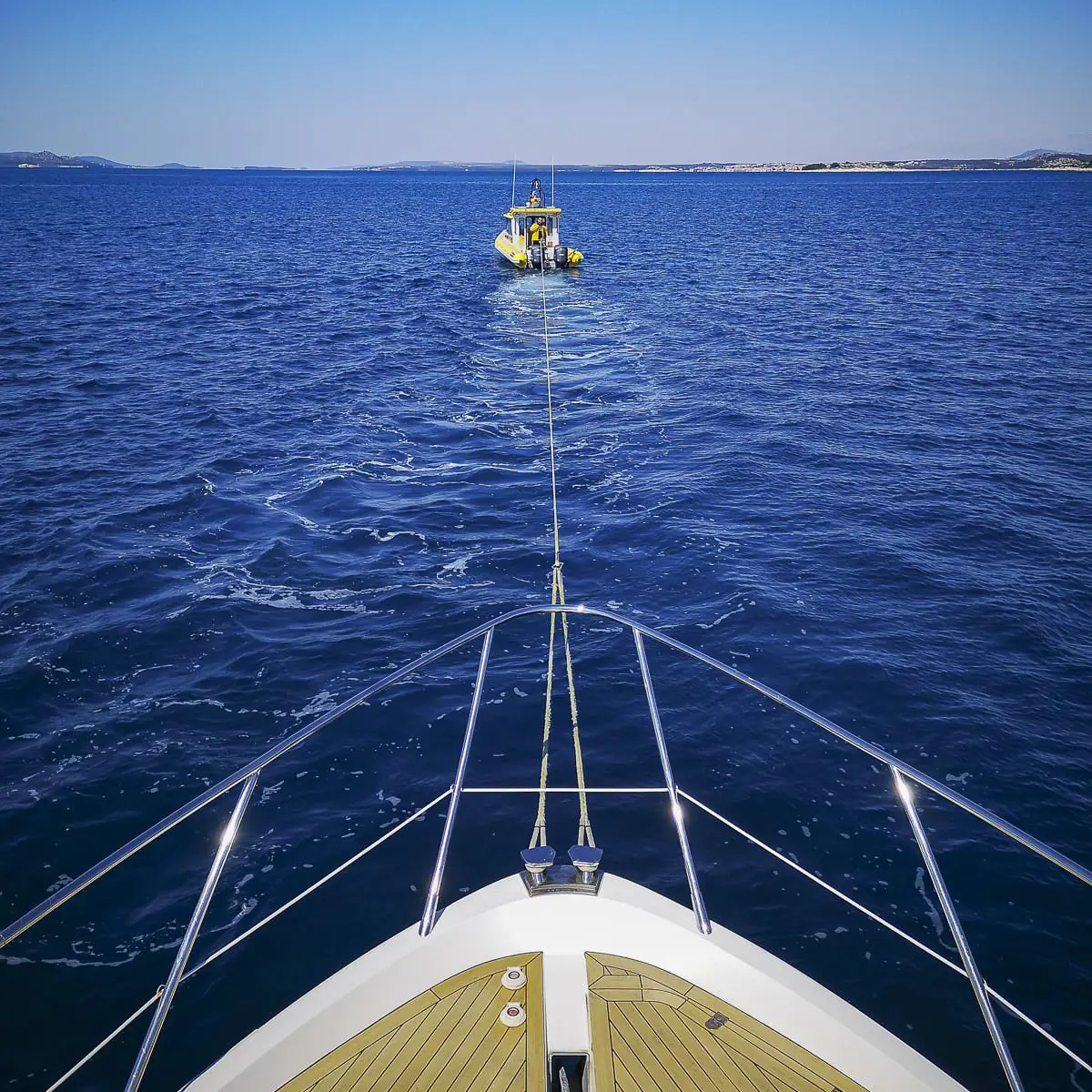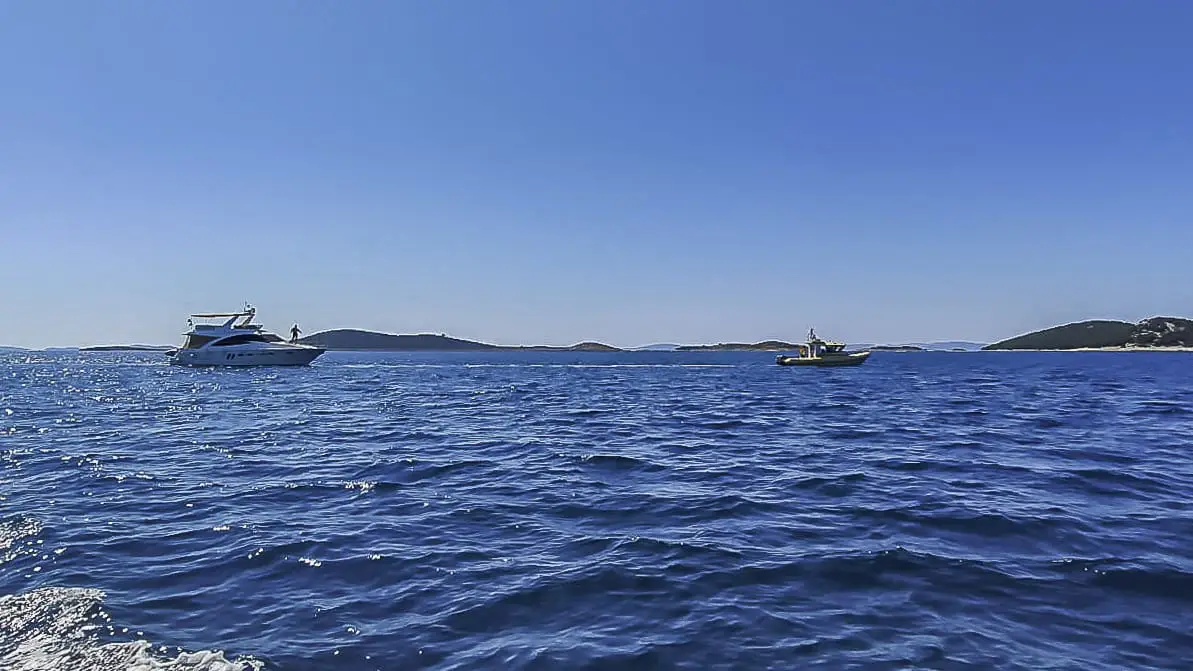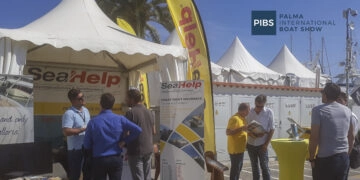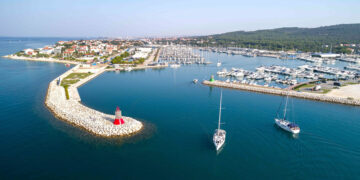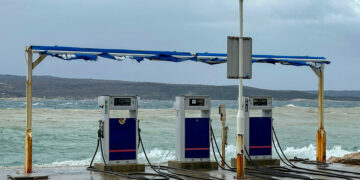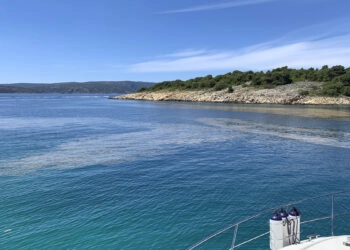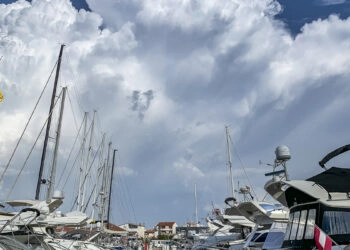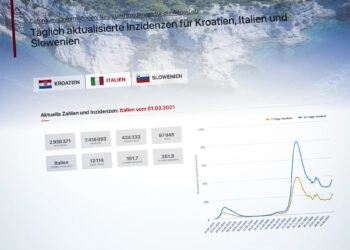SeaHelp towing continues
SeaHelp employees wait patiently in the home office as much as possible and do their work from the living room at home. It is better for the crew members, who occasionally tow boats of individual members from marina to marina, because the owners cannot carry out this work on site due to the current lack of entry possibilities and they have already agreed on services at their new berth. If they do not take advantage of the slots reserved for this purpose, it could become difficult to find a service date after the current measures have been lifted.
Strict controls on Krk
SeaHelp employees from Punat report that controls are quite strict. In particular, the electronic passes, which are valid for 14 days each, provide clarity. Companies can apply for them for employees with special assignments. A SeaHelp employee: “Anyone who wants to go to the neighboring town quickly because shopping in the supermarket is a bit cheaper there will be turned away. From Punat to Krk, for example, is not possible. The ban on going out beyond the town limits is monitored quite strictly by the local police. And if they are not nearby, the fire brigade can also take over police duties by calling elderly people on their bicycles via loudspeaker to go to their homes immediately.
Strong police forces present in Istria
Strict controls are also called for in Istria: In the Medulin area, the police check the new electronic passes on all arterial roads. Anyone who cannot produce them must turn around immediately, as SeaHelp employees have reported. Since the passes are directly linked to the tax number OIB, there is hardly any room for wrangling.
Dalmatia defies Coronavirus
The situation in Dalmatia is similar. Controls are carried out at the borders of towns and villages, and anyone who circumvents them by “covert routes” is threatened with severe penalties. But these hardly ever have to be imposed, because the Croats stick to the measures. Many take it with humour: “Escape from the police cannot be justified by keeping the minimum distance”, the media already say with a wink.
First signs of relaxation
Similar to Germany and Austria, the first signs of a relaxation of the shutdown are emerging in Croatia: “We are doing well and the situation here could soon improve”, the head of the Civil Defence, Krunoslav Capak, was quoted by the Croatian media as saying at a press conference on 6 April. And good news also came from Istria, where extremely strict measures were first implemented: On 4 April, after extensive testing, no new infections with the coronavirus were detected there for two consecutive days. The trend is continuing in other parts of the country: the number of new infections seems to be decreasing noticeably. Croatia’s Prime Minister Andrej Plenković also gave hope: “As far as the relaxation of measures is concerned, we will slowly introduce them in cooperation with epidemiologists”, he let it be known during a video conference.
Conclusion
Even if one would probably have to risk a glance into the much-cited glass ball for the exact time of the startup after the shutdown in Croatia at the moment, first positive signs from the water sports paradise give reason to hope that the 2020 season for tourism does not seem to be lost after all. And most scientists agree on one thing: water, sun and wind could effectively stop the virus.
